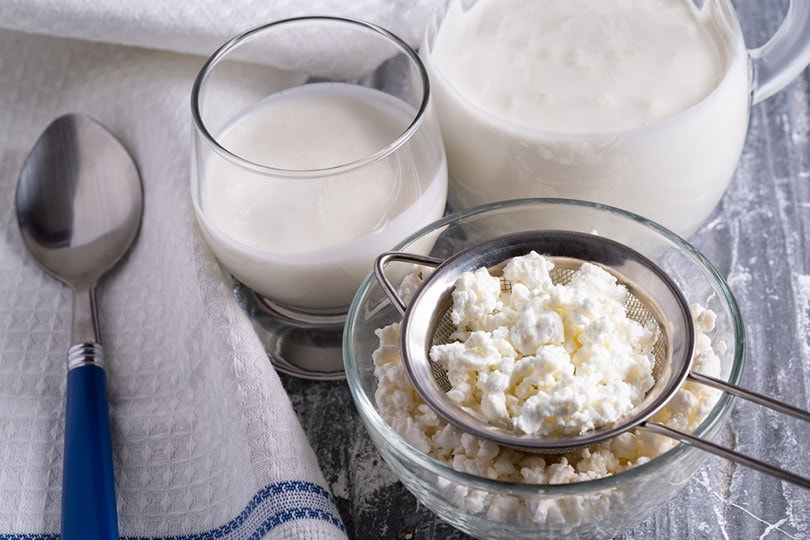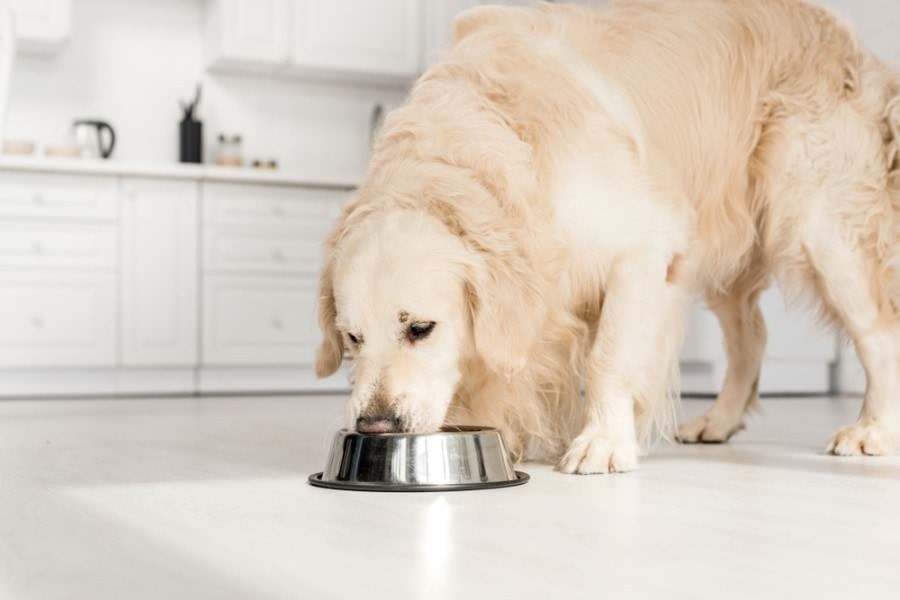Can Dogs Eat Kefir? Vet-Approved Benefits & Risks
Updated on

Do you like kefir? There are lots of people out there who’ve never heard of this fermented milk drink. However, it offers lots of healthy benefits. The big question is, can dogs eat kefir? Are there any health concerns involved? In general, yes, your dog can safely eat kefir, however, it should only be provided in moderation. Let’s learn a bit more below so you can determine whether you’d like to offer this to your pet.
What Is Kefir?
Kefir originated in the Northern Caucasus Region of Russia. It is a fermented milk beverage that is making its way around the world and causing quite the talk. This is due to the probiotic and calcium benefits it offers to humans. Hearing that kefir is a fermented milk beverage may have you wondering how your dog can eat it considering many dogs are lactose intolerant or can’t digest dairy very well. Well, this is because kefir can be made using cow’s milk, goat’s milk, and even dairy-free alternatives like rice, oat, and coconut milk. Kefir can also be made from juice or water.
Kefir is made by using a milk of choice and then adding bacteria and yeast to it. Once this is done, the bacteria eat the sugar inside the milk, multiply, and cause it to ferment. The consistency of the resulting drink is similar to that of yogurt you can drink. The fermentation process of kefir causes it to have a slightly carbonated taste to it. This is thanks to the gas caused by the bacteria that eat the sugar inside the milk. It’s also quite tart and tangy.

The Potential Benefits of Kefir for Your Dog
The allure of kefir are the potential milk-like benefits it offers your dog. Yes, digesting milk can be an issue for many dogs out there. However, when it comes to kefir, this isn’t usually the case. It’s common for even lactose-intolerant dogs to eat and enjoy kefir with no issues at all.
Like most milk-based drinks, kefir offers lots of calcium, protein, and vitamin K which is great for your dog’s bones and bone health. You’ll also find it’s high in magnesium and potassium which are essential for your pet. Vitamins B2 and B12 are also provided by kefir which helps your dog’s metabolism.
The Dangers of Kefir for Your Dog
There aren’t a lot of dangers involved with giving your dog kefir, but there are a few you should keep in mind. For starters, always check with your vet prior to feeding any new human food items. Kefir can cause stomach upset due to the large amount of probiotics inside. This is especially true when it’s first introduced. To avoid this issue, try offering your dog small amounts of kefir to start with, such as ¼ to ½ a teaspoon daily. If your dog can tolerate that amount without issues, you can slowly increase the amount you give them up to 3 or 4 teaspoons daily for a large dog.
You need to also keep your eyes open if you choose store-bought kefir. There are options out there that include sugar. As we all know, too much sugar is not good for your dog. Instead, find kefir which is free of sugar or xylitol. This makes it safer to provide to your dog for the benefits and to help them feel better when they are under the weather.

Final Thoughts
If you’re a fan of kefir or are interested in all the benefits it can provide your dog, first speak to your vet prior to giving them some. Not only is kefir potentially good for your dog, but it is safe if you choose the right products. For lactose-intolerant dogs, choose kefir made from non-dairy milk alternatives. It’s also best to start your dog out on kefir slowly to give their stomachs a chance to adapt to the multiple healthy bacteria and yeast available.
Featured Image Credit: LARISA DUKA, Shutterstock












